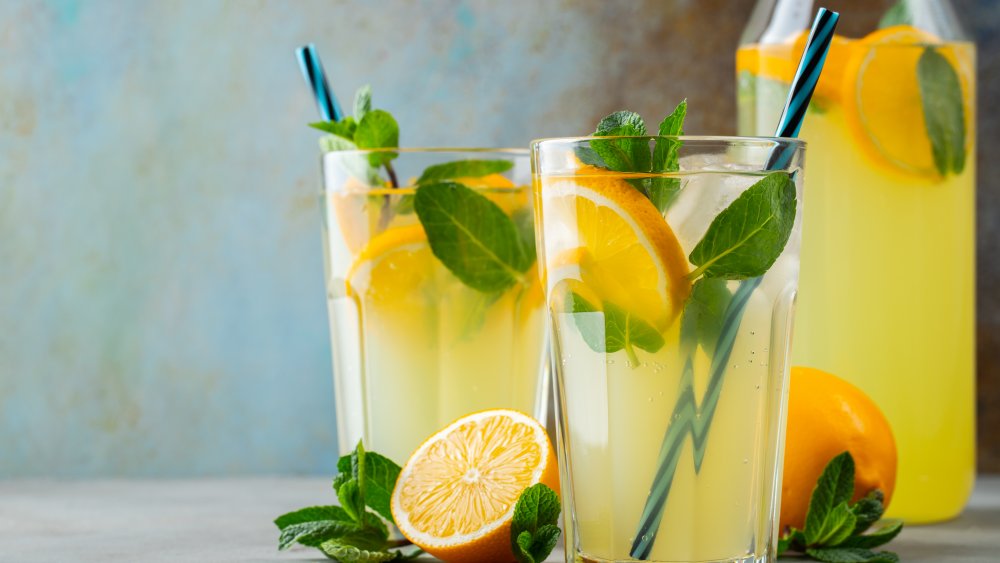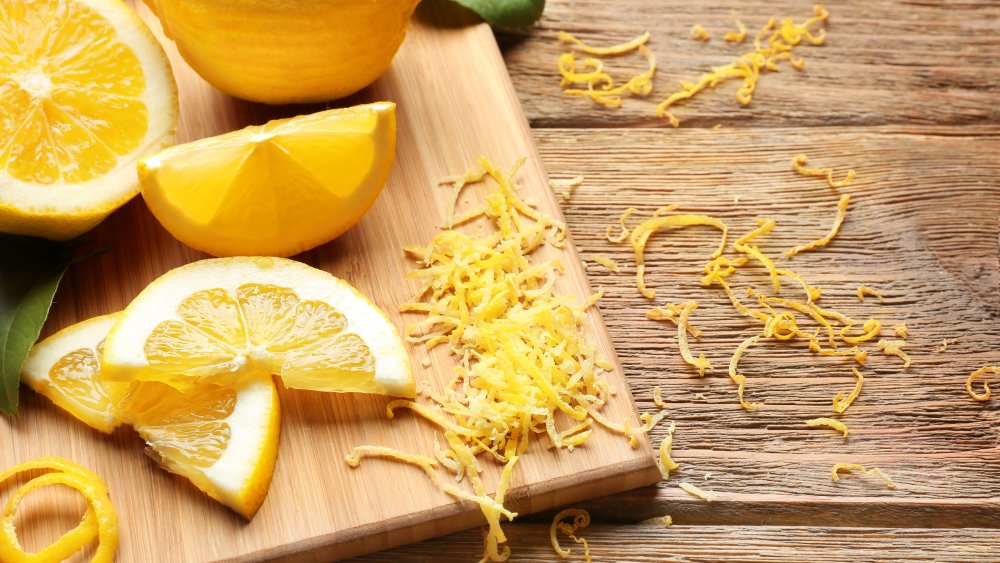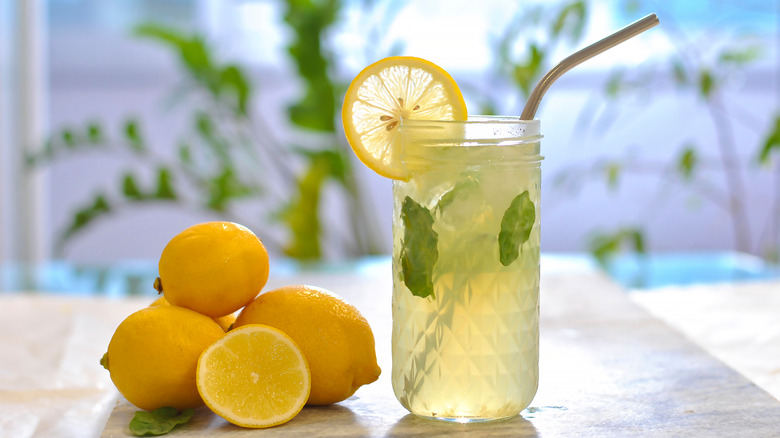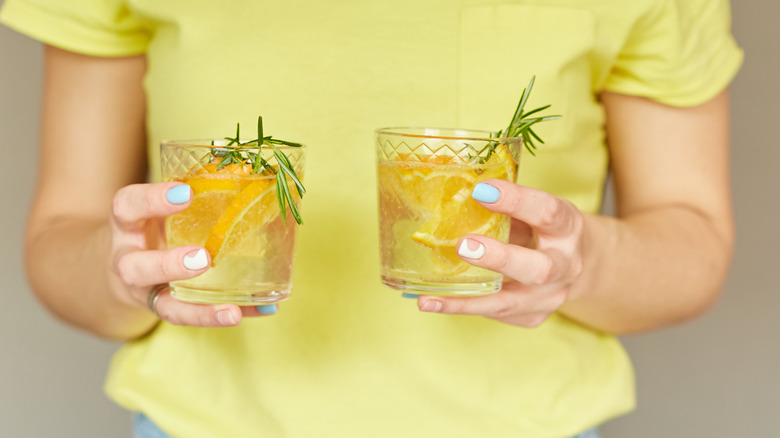The One Thing You Should Always Add To Your Homemade Lemonade
No matter what time of year it is, lemonade is always a crisp, refreshing drink. But there's something about making a homemade lemonade recipe that seems to make it all the better. While drink mixes can have ingredients you might not want in your lemonade, stirring up a pitcher yourself means you can control exactly what goes into it.
Whether you prefer sweeter lemonade or a tart drink, you should add one additional ingredient to pack even more flavor: lemon zest, per The Kitchn.
When the outlet tested 10 ways to make lemonade, there was one key lesson that improved it, and that was adding lemon zest. Adding zest even if you use lemon concentrate creates a depth of flavor that is otherwise hard to capture. Furthermore, when you add zest, the essential oils from the lemons get into the drink and help add a brightness that juice alone doesn't.
How to incorporate more zest into homemade lemonade
There are several ways to add lemon zest into your lemonade, according to the recipes The Kitchn followed. One of the best ways was to make lemonade with a stand mixer because it squeezed all of the juice and essential oils out from the halved lemons. The lemons were then strained, and the liquid had a bright, zesty flavor. Macerating the lemons is another highly-approved way to achieve this.
According to Bon Appetit, the lemoniest lemonade is made with something called oleo-saccharum, an ingredient bartenders use to bring brightness and sweetness to cocktails. Essentially, this is lemon sugar that's more of a thick syrup in texture.
Oleo-saccharum is made by using a peeler to remove the peel of six lemons in wide strips. Next, you place the peels in a bowl and pour a cup of sugar over the top. Use your hands to massage the peels into the sugar for a few minutes, which will help release the essential oils. Let the mixture sit covered on the countertop for at least three hours, or up to a day. The longer it sits, the stronger the lemon flavor will be. What you're left with is a super lemony syrup that will make your lemonade sing. Just add a cup and a half of lemon juice and around six cups of water, then strain, for a delicious drink.
Oleo-saccharum offers a bold, aromatic flavor
If you want your lemonade — or even your citrusy punch or cocktail — to have a bolder, mouth-puckeringly bright flavor, oleo-saccharum is the ingredient you'll need.
So, what exactly is oleo-saccharum, anyway? According to Serious Eats, the term oleo-saccharum directly translates to oily sugar. It's easy to concoct a homemade batch of oleo-saccharum; all you need is fresh zest from lemon peels and sugar, about a 1-to-2 ratio. The sugar allows the lemon peels' natural oils to be extracted while adding a touch of sweetness. It's a lot more fun if you envision performing a chemistry experiment in your kitchen and witness the oils express themselves like magic as the hours pass.
In addition to making flavorful lemonade from lemons, oleo-saccharum can be derived from any citrus fruit, including limes, oranges, clementines, and grapefruits, per Food52. The mega-fragrant oil can also be used in lieu of vinaigrettes for salad dressing or as a zesty ice cream topping. Imbibe advocates incorporating homemade oleo-saccharum into cocktails, mixing it with sparkling water, or stirring it into iced or hot tea.
There are multiple ways to brighten your lemonade
Lemonade is quintessential in the summertime and can bring feelings of nostalgia to anyone who sips it. The beauty of this slightly sour, slightly sweet beverage is that it can be easily customized to the drinker's liking. Whether you prefer your lemonade on the sweeter side or prefer a more tart libation, there are countless methods for creating a pitcher of yellow, citrusy goodness.
For example, your blender can come in handy for more than just whipping up smoothies and milkshakes. Simply Recipes recommends pulverizing whole lemons or lemon slices — rinds and all — with some sugar and water in the blender until smooth, then gently straining the mix over a pitcher. The Kitchn also endorses using simple syrup in basic lemonade recipes. Simple syrup is a moderately thick, viscid solution of sugar and water that's often fused into chilled cocktails, iced tea, and of course, lemonade.
Lemonade lovers can also use a stand mixer when whipping up the iconic summery sipper. With so many tried-and-true lemonade recipes, it's easy to discover what pleases your palate.



